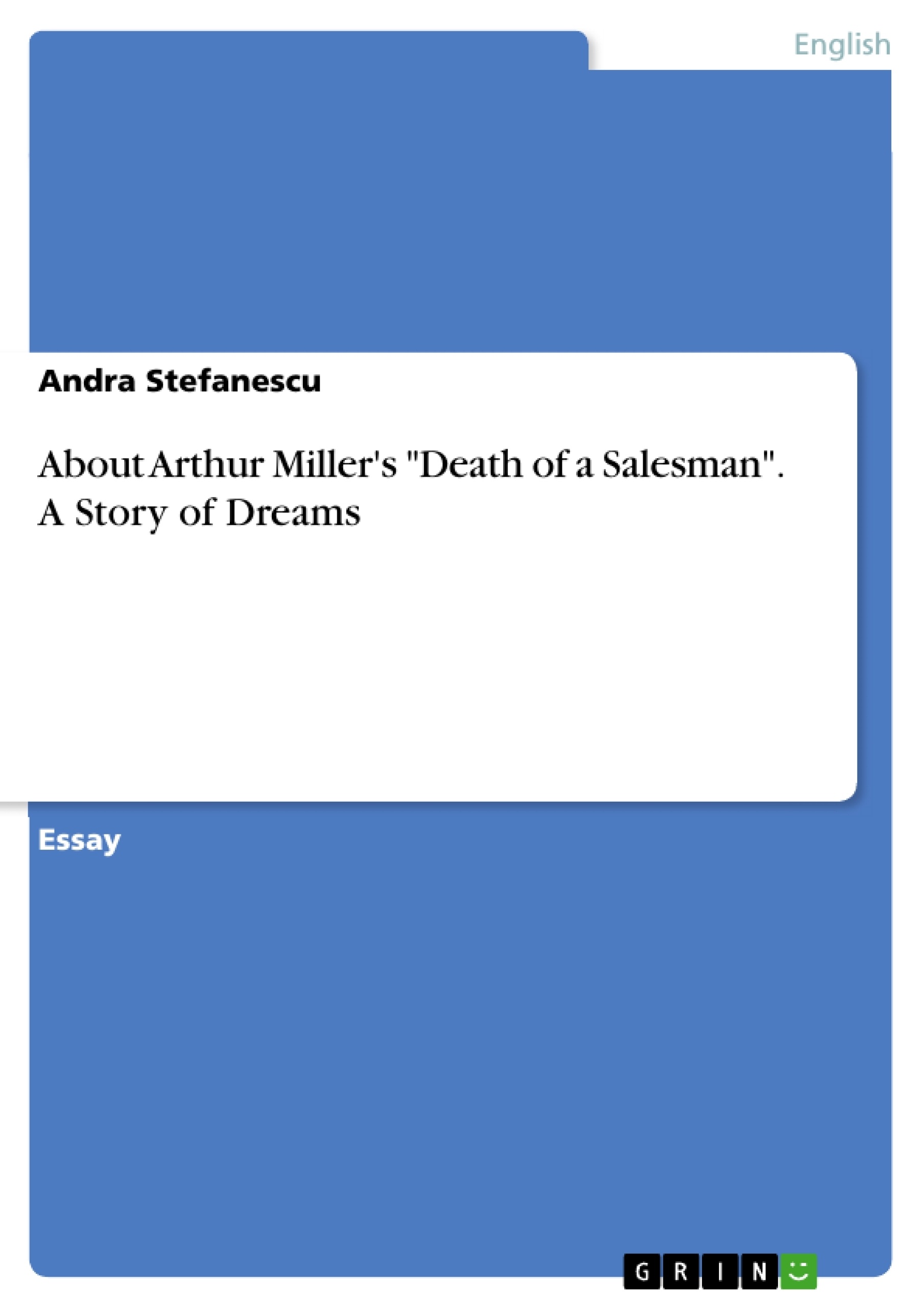My paper deals with the exploration of the American dream for a wealthy, comfortable and successful life and the failure in achieving it, as reflected in the Requiem of Arthur Miller’s Death of a Salesman, taking into account the traits of Social Realism that the play meets. In this respect, Willy Loman represents the archetype of man obsessed with material gains and madly engaged in a pursuit for success, but who eventually ends up tragically, as a victim of his own delusions of grandeur.
Table of Contents
- Death of a Salesman a Story of Dreams
- The American Dream and Social Realism in Arthur Miller's Death of a Salesman
- Willy's Misinterpretation of the American Dream
- The Failure of Willy Loman's Dream
- Biff and Happy's Different Approaches to the American Dream
- Charley's Interpretation of Willy's Life
- The American System: Business is Business
- The Importance of Hope and Understanding
- Loneliness and the Artist's Role
- The Importance of the Audience and the Realist Narrator
- Miller's Technique and the Use of Dreams
Objectives and Key Themes
This paper examines the pursuit and failure of the American dream for a comfortable and successful life, as depicted in Arthur Miller's play Death of a Salesman. It explores the play's themes of social realism, focusing on Willy Loman's tragic demise as a victim of his own delusions and the pressures of a materialistic society.
- The American Dream and its Misinterpretation
- The Role of Social Realism in the Play
- The Tragic Consequences of Willy's Delusions
- The Impact of Materialism and Social Pressures
- Individual Identity and the Search for Meaning
Chapter Summaries
- This chapter examines Willy Loman's flawed interpretation of the American dream, highlighting his superficial understanding of success as being well-liked, having wealth, and possessing many connections.
- The chapter focuses on Willy's veneration of Dave Singleman, a successful salesman, and the tragic irony of Willy's own funeral, which is attended by only a few people.
- This chapter analyzes the opposing views of Willy's sons, Biff and Happy, on the American dream. Biff recognizes the fallacy of his father's dream and rejects it, while Happy remains stubbornly committed to it.
- This chapter explores Charley's perspective on Willy's life, emphasizing the instability and unpredictability of the salesman's profession. Charley sees Willy as a victim of his own ambitions and the demands of a competitive society.
- This chapter delves into the societal pressures that contribute to Willy's downfall, highlighting the materialistic nature of the American system and its emphasis on individual success.
- The chapter discusses the importance of hope and understanding in Willy's tragic situation. It argues that while Willy's dreams were misguided, he ultimately did his best and deserves compassion.
- This chapter examines the theme of loneliness in the play, both as it relates to Willy's personal experience and as a broader societal issue, drawing parallels to the author's own reflections on isolation.
- This chapter analyzes the role of the audience in interpreting the play's message and the realist narrator's objective presentation of facts without manipulation.
- This chapter explores Miller's unique narrative technique, emphasizing the dream-like quality of the play and the interplay of past and present events.
Keywords
This paper explores the American dream, social realism, tragedy, materialism, identity, delusion, societal pressures, loneliness, and the importance of understanding and compassion. It examines the complex relationship between Willy's personal failures and the broader social forces that shaped his life, ultimately presenting a poignant commentary on the human condition.
- Quote paper
- Andra Stefanescu (Author), 2006, About Arthur Miller's "Death of a Salesman". A Story of Dreams, Munich, GRIN Verlag, https://www.grin.com/document/91273




